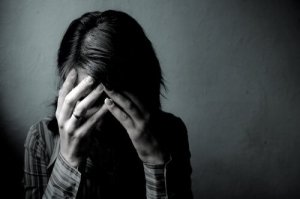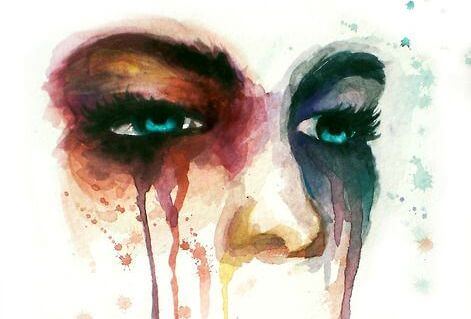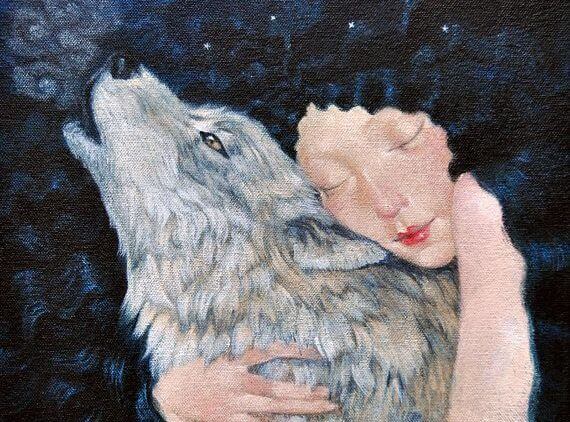Cowardice Feeds Sadness

Sadness seems to be one of the most distinctive signs of our times. It is as if depression had become a massive affliction within our contemporary world. In fact, the World Health Organization has been releasing a series of reports that document the increase in the number of diagnoses, to the point that there is talk of it being a pandemic.
Under the label of “depression,” we can understand almost any form of sadness or emotional discomfort. But not only that, it is a condition that has become perfectly tolerable and is even exalted in our daily lives. It is common to hear someone say that they are “depressed” or that “I’m not going out tonight because I’m feeling a bit depressed.” What only a few decades ago was a psychiatric condition is now a word that has become part of our daily vocabulary and is confused with sadness.
“Cowards die many times before their deaths; the valiant never taste of death but once.”
-William Shakespeare-
Chronic sadness and mental health
There is much debate around the factors behind this depression epidemic. Many are convinced that organic and genetic factors are solely responsible for feelings of sadness, such that people have no responsibility for the suffering that ails us. It is thus a matter of taking “x” medicine and that’s it. Pharmaceutical companies have been the great beneficiaries of this “epidemic.”

In ancient times, the mood disorder that led people to remain passive, invaded by sadness and prisoners of the their lack of desire to live, was attributed to an imbalance in the bodily “humors.”
In the Middle Ages, this chronic sadness was given the name “acedia” and it was one of the mortal sins, before that concept was absorbed into that of “sloth.” The great poet Dante figured that people who were affected by permanent sadness and who did nothing to overcome it must be in purgatory, lamenting all of the time lost.
In the 19th century, psychiatrist Joseph Guislain defined that permanent state of sadness as “pain of existence.” Later on, Sèglas indicates that it is a case of “moral hypochondria.”
In the 20th century, psychiatry named this “depression,” and defines it as a disorder characterized by demotivation, recurrent feelings of guilt, anguish, apathy towards the world, a decrease in love for oneself, and a state of permanent self-accusation or self-reproach.
It is Lacan who ends up defining chronic sadness as an effect of moral cowardice. It is not an accusation, but rather a point of view that asserts an important fact: there is indeed something that each person must know about their sadness. There are indeed ways to tackle and understand that question and it is the responsibility of each person to build that knowledge.
Sadness and cowardice
Those who suffer from chronic sadness experience a strong feeling of inauthenticity. It seems to them as if life were happening on a stage that does not belong to them. They also register what could be called a sensation of “exile” from everything that happens in the world. As if the planet spun and they just stayed there, silent. The present is seen as foreign, the future as an omen of new sufferings, and the past is an inventory of losses that the person returns to time and time again.

People with depression ask themselves, “What meaning does life have?” And they tend to accompany this question with the following answer: “It would have been better if I were never born.” Both the question and the answer are two traps in and of themselves.
Of course, life does not have a meaning in and of itself, because each of us are the ones who give it meaning. There is not a book or a manual or a law that says: this is the meaning of life. And faced with the statement that it would have been better never to have been born, there is also a great fallacy: in the end, we were born and we are here. It is a done deal.
Both the question and the answer relieve the person of their responsibility. “If life does not have a meaning already, then I am not interested,” is what they seem to say. Or “If I did not ask to be born, do not ask me now to make something worth living of my life.”
In this way, they turn into “objects” of sadness, not subjects of it. This is where their moral cowardice resides. For some people, even the fact of being sad can turn into a motivation to be proud: it is proof of their “special” condition and it allows them to construct an entire discourse in which they are eternal victims.

It is true that we did not all come into this world with the same cards. We are unplanned children, or we are poor, or we are mistreated, or we are abused when we cannot react, or a thousand other situations that cause pain. Maybe those previous pains give rise to new voids and new disappointments.
But in the end, each of us must decide how we will deal with those situations. This is our responsibility and we cannot blame it on the cards that we were given to play with, because by denying our own lives, we are painting ourselves as melancholic losers of joy.
Sadness seems to be one of the most distinctive signs of our times. It is as if depression had become a massive affliction within our contemporary world. In fact, the World Health Organization has been releasing a series of reports that document the increase in the number of diagnoses, to the point that there is talk of it being a pandemic.
Under the label of “depression,” we can understand almost any form of sadness or emotional discomfort. But not only that, it is a condition that has become perfectly tolerable and is even exalted in our daily lives. It is common to hear someone say that they are “depressed” or that “I’m not going out tonight because I’m feeling a bit depressed.” What only a few decades ago was a psychiatric condition is now a word that has become part of our daily vocabulary and is confused with sadness.
“Cowards die many times before their deaths; the valiant never taste of death but once.”
-William Shakespeare-
Chronic sadness and mental health
There is much debate around the factors behind this depression epidemic. Many are convinced that organic and genetic factors are solely responsible for feelings of sadness, such that people have no responsibility for the suffering that ails us. It is thus a matter of taking “x” medicine and that’s it. Pharmaceutical companies have been the great beneficiaries of this “epidemic.”

In ancient times, the mood disorder that led people to remain passive, invaded by sadness and prisoners of the their lack of desire to live, was attributed to an imbalance in the bodily “humors.”
In the Middle Ages, this chronic sadness was given the name “acedia” and it was one of the mortal sins, before that concept was absorbed into that of “sloth.” The great poet Dante figured that people who were affected by permanent sadness and who did nothing to overcome it must be in purgatory, lamenting all of the time lost.
In the 19th century, psychiatrist Joseph Guislain defined that permanent state of sadness as “pain of existence.” Later on, Sèglas indicates that it is a case of “moral hypochondria.”
In the 20th century, psychiatry named this “depression,” and defines it as a disorder characterized by demotivation, recurrent feelings of guilt, anguish, apathy towards the world, a decrease in love for oneself, and a state of permanent self-accusation or self-reproach.
It is Lacan who ends up defining chronic sadness as an effect of moral cowardice. It is not an accusation, but rather a point of view that asserts an important fact: there is indeed something that each person must know about their sadness. There are indeed ways to tackle and understand that question and it is the responsibility of each person to build that knowledge.
Sadness and cowardice
Those who suffer from chronic sadness experience a strong feeling of inauthenticity. It seems to them as if life were happening on a stage that does not belong to them. They also register what could be called a sensation of “exile” from everything that happens in the world. As if the planet spun and they just stayed there, silent. The present is seen as foreign, the future as an omen of new sufferings, and the past is an inventory of losses that the person returns to time and time again.

People with depression ask themselves, “What meaning does life have?” And they tend to accompany this question with the following answer: “It would have been better if I were never born.” Both the question and the answer are two traps in and of themselves.
Of course, life does not have a meaning in and of itself, because each of us are the ones who give it meaning. There is not a book or a manual or a law that says: this is the meaning of life. And faced with the statement that it would have been better never to have been born, there is also a great fallacy: in the end, we were born and we are here. It is a done deal.
Both the question and the answer relieve the person of their responsibility. “If life does not have a meaning already, then I am not interested,” is what they seem to say. Or “If I did not ask to be born, do not ask me now to make something worth living of my life.”
In this way, they turn into “objects” of sadness, not subjects of it. This is where their moral cowardice resides. For some people, even the fact of being sad can turn into a motivation to be proud: it is proof of their “special” condition and it allows them to construct an entire discourse in which they are eternal victims.

It is true that we did not all come into this world with the same cards. We are unplanned children, or we are poor, or we are mistreated, or we are abused when we cannot react, or a thousand other situations that cause pain. Maybe those previous pains give rise to new voids and new disappointments.
But in the end, each of us must decide how we will deal with those situations. This is our responsibility and we cannot blame it on the cards that we were given to play with, because by denying our own lives, we are painting ourselves as melancholic losers of joy.
This text is provided for informational purposes only and does not replace consultation with a professional. If in doubt, consult your specialist.







